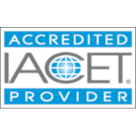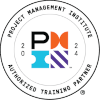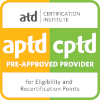Certificate Suite Details
Key Features
- Mobile-friendly
- Audio-enabled
- Badge and credit-awarding
- Real-world case studies
- Fully accessible
- Games & Flashcards
- Expert-supported
- Video content
Certificate Preview
Certificate Description
Courses Included in this Certificate
Course Description
This course covers the role of governance and risk management in information security. It looks at the policies and standards that are needed to operate an effective information security function and to oversee good information security practices. The course also includes a look at how modern organizations manage information security risks and how to conduct a risk analysis. It concludes by examining the process for providing information security training and education. This course requires some basic understanding of IT concepts.
Course Credits
Course Description
Companies must protect their assets. Just as locks go on the doors to protect physical assets, electronic and data assets must also be guarded. Asset security involves the full support of everyone in an organization, from corporate-level personnel down to front-line employees. Various security controls will be described that help protect privacy, along with data leakage prevention (DLP). Although it is not necessary, having some foundation in IT concepts is helpful in taking this course.
Course Credits
Course Description
This course contains an introduction to the key concepts of cryptography and security engineering. It examines the role of encryption in information security and considers common encryption methods. In addition, the course discusses ciphers, their substitutes, and how they work. Public key infrastructure and management is also covered. This course requires a basic understanding of IT concepts.
Course Credits
Course Description
This course covers topics related to communications and network security. It begins with a lesson in the different types of networks and different transmission technologies. It also covers the two main models that govern how networks work: the OSI model and the TCP/IP model, as well as their related layers. The course includes a detailed discussion of the many protocols that allow networks and network devices to communicate with one another and includes a discussion of firewalls and wireless networks. This course is designed for IT professionals and other adult learners who are interested in gaining an introduction to information technology security.
Course Credits
Course Description
This course introduces students to the principles of access controls, beginning with the central modes of information security and continuing through various attacks and defenses. The course presents different kinds of authentication techniques, how they work, and how they are distinguished from each other. This course requires some basic understanding of IT concepts.
Course Credits
Course Description
This course covers security assessment and testing, focusing on potential disruptions that can affect organizations and how they can be addressed with assessments and plans. Students will have the opportunity to practice how to assess the impact of disasters that may arise as well as to develop their own versions of these plans. This course requires a basic understanding of IT concepts.
Course Credits
Course Description
This course contains a detailed overview of security operations: administrative controls, trusted recovery and change and incident management. This course establishes a foundation in auditing, monitoring and detection in information security. This course requires a basic understanding of IT concepts.
Course Credits
Course Description
This course covers software development security while focusing on the systems development life cycle, operating systems, and their environments. Additional topics include the role of various databases in security and how to recognize and guard against attacks on software. Students will have the opportunity to apply application security controls. This course requires a basic understanding of IT concepts.
Course Credits
Notes
This course has an "Ask the Expert" feature, which submits your questions directly to an expert in the field you are studying. Questions are answered as quickly as possible and usually within 24 hours.
As an Accredited Provider, MindEdge offers for its learning events that comply with the Continuing Education and Training Standard.
Learners must achieve an average test score of at least 70% to meet the minimum successful completion requirement and qualify to receive credit. Learners will have three attempts at all graded assessments.
Project Management Institute, , the Registered Education Provider logo, Project Management Professional, , Project Management Body of Knowledge, , Agile Certified Practitioner, -, Risk Management Professional, -, the Talent Triangle, and the Talent Triangle logo are marks of the Project Management Institute, Inc.
Information in this course has been taken from A Guide to the Project Management Body of Knowledge, (® Guide) - Sixth Edition, Project Management Institute Inc., 2017.
The following list outlines the you will earn for completing this course, based on the certifications you have.




